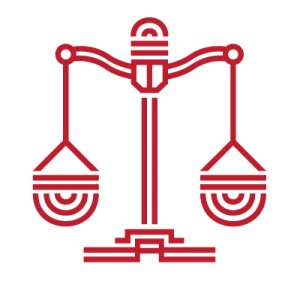Best Structured Finance Lawyers in Midrand
Share your needs with us, get contacted by law firms.
Free. Takes 2 min.
List of the best lawyers in Midrand, South Africa
About Structured Finance Law in Midrand, South Africa
Structured finance refers to complex financial transactions and instruments used by businesses and organizations to raise funds, manage risks, and optimize their balance sheets. In Midrand, South Africa, structured finance is gaining significance, especially with the region's strategic positioning between Johannesburg and Pretoria. The local business environment benefits from advanced financial solutions, such as securitizations, syndications, and derivatives, which help companies access capital and manage exposure. Legal frameworks around these financial products are sophisticated and continually developing, making it essential for stakeholders to fully understand their rights, obligations, and risks.
Why You May Need a Lawyer
Structured finance transactions are typically large, complex, and involve multiple parties and jurisdictions. You may need a lawyer for a variety of reasons, including:
- Structuring and negotiating complex financial deals, such as asset-backed securities or loan syndications.
- Drafting and reviewing legal documents, including contracts, agreements, and disclosure statements.
- Ensuring compliance with local and international regulations governing structured finance transactions.
- Identifying and mitigating legal and financial risks.
- Advising on tax implications and regulatory requirements in South Africa.
- Resolving disputes or litigations that arise from structured finance agreements.
- Facilitating due diligence processes for investors and financial institutions.
- Guiding local and international investors through South African market entry and transactional procedures.
Local Laws Overview
Structured finance in Midrand operates within the broader legal framework of South Africa, which includes specific regulations and acts relevant to financial transactions. Important laws and regulatory bodies include:
- The Companies Act, 2008, which regulates company structures and governance for entities engaging in structured finance.
- The Financial Markets Act, 2012, governing the operation of financial markets and infrastructure.
- The National Credit Act, 2005, setting requirements and consumer protection standards for credit agreements.
- The Banks Act, 1990, which regulates all banking activities, including syndicated loans and securitization arrangements.
- The South African Reserve Bank, which sets monetary policy and supervises certain cross-border transactions.
- The Financial Sector Conduct Authority (FSCA) and Prudential Authority, which oversee the conduct and prudential regulation of financial institutions.
- Exchange control regulations monitored by the South African Reserve Bank, important for transactions involving foreign entities or currencies.
All these laws aim to ensure transparency, protect investors, and mitigate systemic risks within the financial system. Transactions outside compliance with these frameworks can be declared unlawful, with significant penalties or challenges to enforceability.
Frequently Asked Questions
What is structured finance?
Structured finance involves creating complex financial products and transactions that are designed to address specific funding or risk management needs, such as securitizations, syndicated loans, and derivatives.
Which structured finance products are most common in Midrand?
Securitizations of assets, syndicated lending, and structured notes are common, especially among large enterprises and property developers.
Do I need a lawyer for every structured finance deal?
While not legally required, it is highly recommended to engage a lawyer given the complexity and risks of these transactions.
What kinds of businesses use structured finance in Midrand?
Large corporates, financial institutions, real estate developers, and investment companies commonly make use of structured finance solutions.
Are there any restrictions for foreign investors in structured finance?
Yes, foreign investors are subject to exchange control regulations and may require approval from regulatory bodies such as the South African Reserve Bank.
What are the risks involved with structured finance?
Risks include legal compliance, counterparty risk, changes in market conditions, and potential for regulatory intervention or penalties.
How is investor protection addressed in structured finance deals?
Investor protection is ensured through regulatory oversight, proper disclosures, and risk mitigation mechanisms embedded within the transaction structure.
Can disputes related to structured finance be resolved locally?
Yes, disputes can typically be resolved through South African courts or arbitration, as contractually agreed by the parties.
What role do local regulators play in structured finance?
Local regulators oversee the conduct of the parties, approve certain transactions, and ensure the stability and legality of structured finance activities.
How is confidentiality handled in these transactions?
Confidentiality is governed by agreement between parties and relevant laws, and it is crucial for protecting sensitive financial and commercial information.
Additional Resources
If you need more information about structured finance in Midrand, the following organizations can be helpful:
- Financial Sector Conduct Authority (FSCA) - Supervises market conduct and oversees financial institutions.
- South African Reserve Bank - Manages exchange control and reviews significant financial transactions.
- Companies and Intellectual Property Commission (CIPC) - Registers business entities and manages compliance for South African companies.
- Law Society of South Africa - Lists qualified legal practitioners for structured finance matters.
- South African Institute of Chartered Accountants (SAICA) - Provides guidance on the accounting implications of structured finance.
Next Steps
If you are considering or involved in a structured finance transaction in Midrand, South Africa, consider the following steps:
- Define your objectives and understand the financial products and structures involved.
- Gather all necessary legal and financial documentation.
- Consult with a lawyer specializing in structured finance to assess risks, compliance, and structuring options.
- Engage all relevant professionals, such as accountants and tax advisers.
- Conduct thorough due diligence before committing to any agreement.
- Ensure ongoing legal and regulatory compliance throughout the transaction life cycle.
Acting early and consulting with local experts will help you navigate the complexities of structured finance, protect your interests, and achieve your financial objectives responsibly.
Lawzana helps you find the best lawyers and law firms in Midrand through a curated and pre-screened list of qualified legal professionals. Our platform offers rankings and detailed profiles of attorneys and law firms, allowing you to compare based on practice areas, including Structured Finance, experience, and client feedback.
Each profile includes a description of the firm's areas of practice, client reviews, team members and partners, year of establishment, spoken languages, office locations, contact information, social media presence, and any published articles or resources. Most firms on our platform speak English and are experienced in both local and international legal matters.
Get a quote from top-rated law firms in Midrand, South Africa — quickly, securely, and without unnecessary hassle.
Disclaimer:
The information provided on this page is for general informational purposes only and does not constitute legal advice. While we strive to ensure the accuracy and relevance of the content, legal information may change over time, and interpretations of the law can vary. You should always consult with a qualified legal professional for advice specific to your situation.
We disclaim all liability for actions taken or not taken based on the content of this page. If you believe any information is incorrect or outdated, please contact us, and we will review and update it where appropriate.











